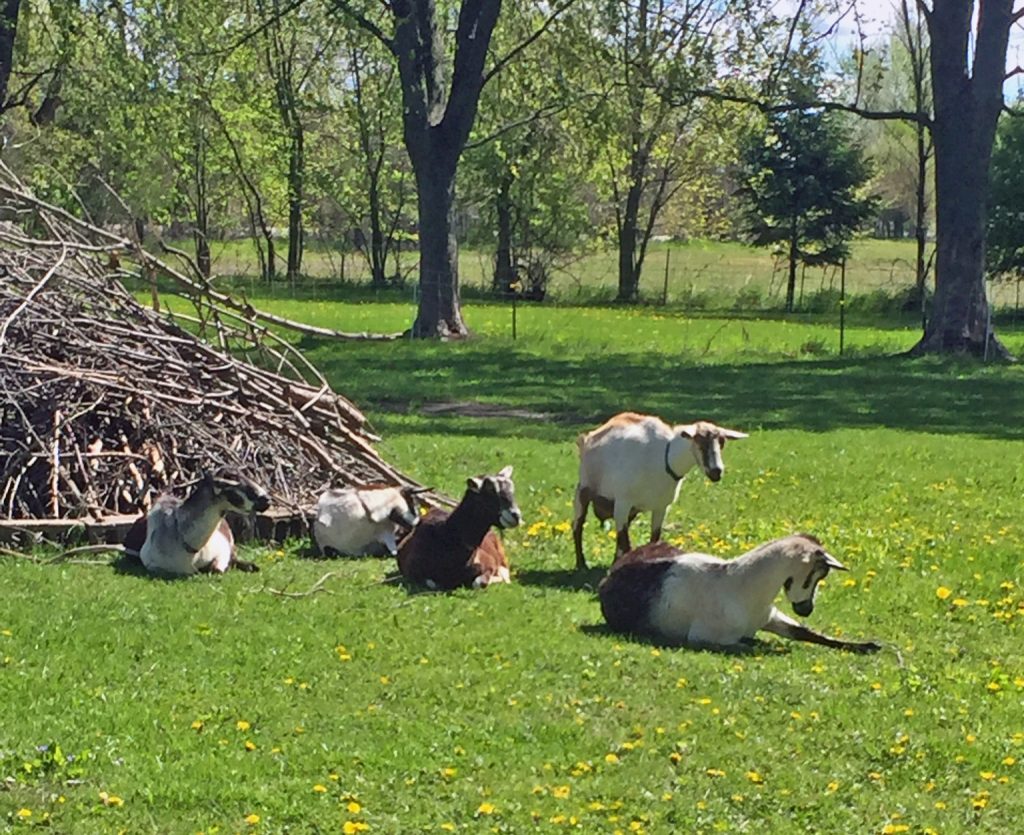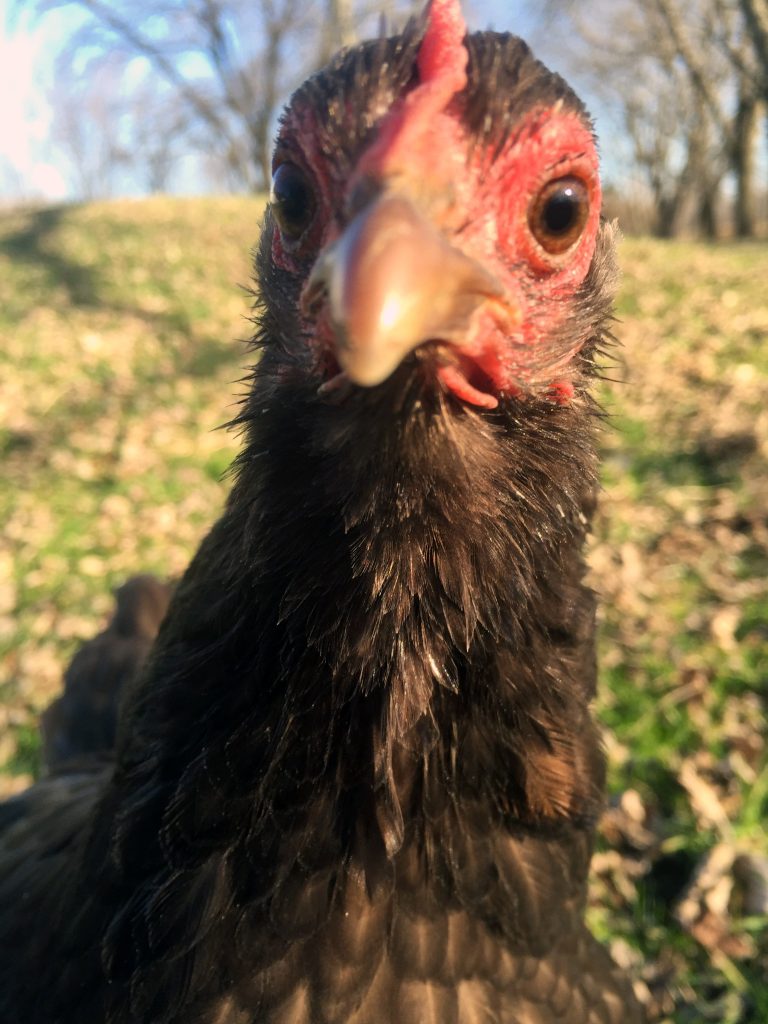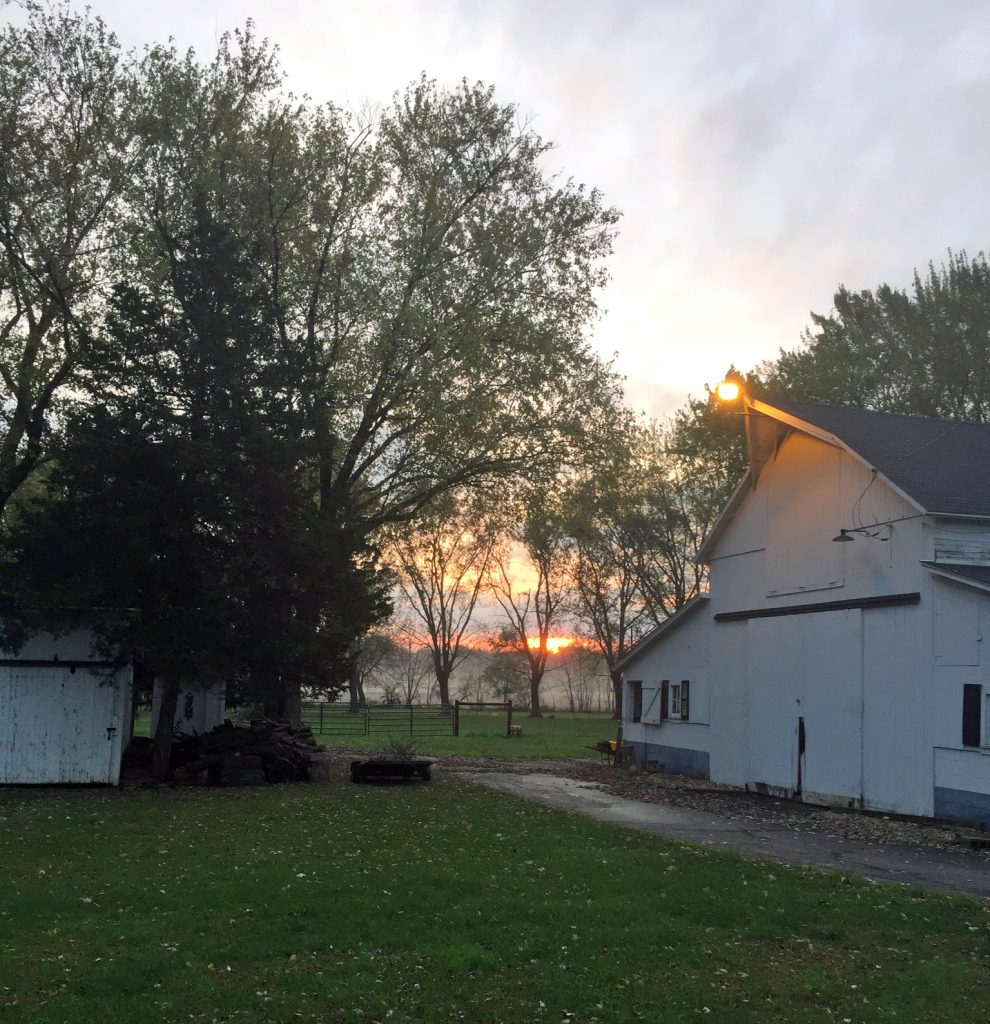Nicole Opie is a long-time Farm Aid volunteer, giving her time and talent to help us behind the scenes at many Farm Aid festivals! We are thrilled to share her farmer story. Look for her behind the scenes at Farm Aid 2019!
“I had heard that drinking raw, unpasteurized milk, would help alleviate allergies so I started visiting goat farms – from here to Colorado – and picking up tricks of the trade,” Nicole Opie begins. She found that goat milk did alleviate her allergies, though there was one issue. Although you could consume raw milk if you owned a farm and the livestock that produced raw dairy products, buying raw goat milk in the state of Wisconsin in 2007 was illegal. At that time, Nicole was living in Janesville, and her solutions was to keep two goats behind her garage. “It was probably cheaper for me to get a ticket for having two goats than it was for buying raw milk, so I went with the two goats,” she says, laughing.
Nicole’s introduction to raising goats inspired her to move out to a farm and increase her herd size to make goat milk soap. Having grown up working on a horse farm, buying a farm and starting a business wasn’t so far of a stretch. There was widespread interest in her goat milk soap from the beginning, which Nicole attributes to her initiative during the 2008 recession. “When I started out in 2008, the economy was really, really bad. I think people started to notice how much creativity can come out of a poor economy and how you can survive in the United States in a very competitive, capitalistic market on your own if you’re willing to do something that most people wouldn’t do.”

Today, Nicole and her partner, JP Casper, own a 24-acre farm named The OC Acres. They’ve raised chickens, donkeys, cats, pigeons, pheasants, hunting dogs and lapdogs, and chuckars (a kind of partridge). The donkeys serve as the guardians for the other animals. Additionally, they grow what Nicole describes as a “salad,” consisting of certain grasses, alfalfa and clover, for their animals.
Their involvement with the community and other farmers has continued to thrive. Nicole notes that many people still ask about the farm and the process of making goat milk soap. The many day-to-day challenges of running a farm have been made easier by the support of friends, family & neighbors, who have worked on the farm, taken care of sick animals, and helped with mechanical or equipment issues.
“A lot of people don’t realize how much emotion goes into farming.”
Nicole states that the most difficult part of operating a farm is the emotional aspect that goes into taking care of all the animals: “It’s not easy when they get sick; it hurts you too. And when you lose them, you suffer deep-down inside…A lot of people don’t realize how much emotion goes into farming, and how much it can take out of you as well.” Yet, she is unequivocal that the benefits of raising animals outweigh any drawbacks or day to day difficulties. “It can be very rewarding, but it can be very, very difficult too. It’s not for the faint of heart.”
Natural and unnatural disasters have befallen the farm in recent years. Days after contracting a huge fencing job to contain the goats, donkeys and numerous free-range chickens, straight-line winds damaged the fence. Despite tornado warnings, Nicole and JP worked well into the night to mend it. The previous year, a chemical company had mistakenly sprayed the farm’s produce field with a chemical cocktail – a spray consisting of pesticides, fertilizers and an anti-drift agent, which “basically turned the dirt into concrete.” This had been ordered by the conventional farm next door, and the chemical company had given the driver the wrong map. Approximately 2,000 hand-planted seedlings in addition to direct sow potatoes, onions, and other produce meant for the University of Wisconsin’s agricultural studies, went to waste. The anti-drift agent, meant to make the ground more resistant to erosion, wind, and water, made it impossible to dig deep enough to plant anything. Only weeds remain. Any producer, Nicole says, who was “dependent on that income from that field for years to come, could have been financially devastated.”

Climate change has posed a challenge as well. Nicole explains there used to be four distinct seasons, but the transitions between the seasons have become “blurred.” Flooding has become more common and this past winter, water covered much of the farm, causing animals to get loose and reducing the total area available for growing crops. The creek running through her farm flooded, covering nearly half her property, whereas at normal level, it would not even cover a quarter of her land.
As Nicole and JP transition towards retirement, they envision leaving their farm in the hands of capable beginners/beginning farmers and splitting their time between Belize and Colombia, where they own farmland and will grow fruit and nuts. Nicole has done extensive volunteer work with the organization Farmer-to-Farmer, which sends experienced farmers to provide training in developing countries. Her experience working in Kenya, Colombia, Belize and Ecuador has given her a different perspective on the future of farming, both in the United States and abroad. Nicole noticed that most of these developing countries’ produce was grown organically and eaten locally. Further, their “lack of use of big equipment means that they do not have the soil compaction that we have. And the fact that they use little to zero chemicals makes their land the future of agriculture.”
Nicole is adamant that small-scale farming and local produce in the United States would make for a more stable economy and a healthier population. “It’s very uphill from here; I think Americans have become very complacent with their food and the source of their food and the future of their food,” she says. “They need to be more involved, in just production alone.” This involvement, she says, could be as simple as “having a few plants on your back porch or growing a few tomatoes.”
Nicole acknowledges that farming “can be a battle every day. It can be rough for days on end, and a lot of people give up and I completely empathize with that.” Yet, “regardless of the problems and the challenges of raising your own animals, growing your own food, producing your own milk and cheese, the pros still outweigh the cons. And it’s so important that more and more people take part in that food production process for themselves and their families.”

Written by Ben Covell.
Ben joined Farm Aid for three short weeks during August, before heading off to his senior year of college at Oberlin. Ben put his awesome writing skills to work interviewing farmers for our Farmer Hero column, learning about farming along the way.




